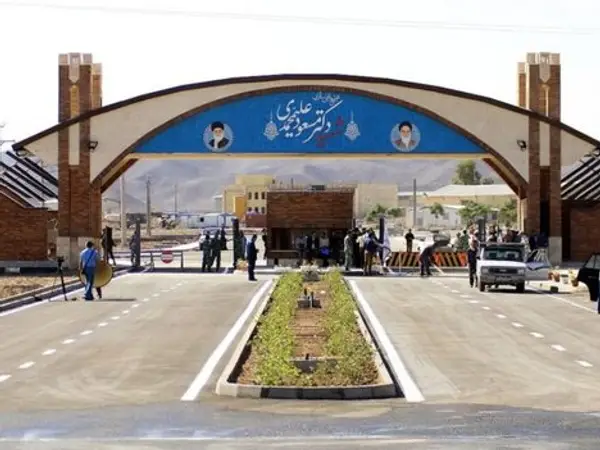A White House official said Tuesday the United States was watching “with deep concern” as Iran stated it was enriching uranium to 60 precent at a second atomic site.
“We certainly have not changed our view that we will not allow Iran to achieve a nuclear weapons capability,” National Security Council spokesman John Kirby told reporters. “All options” were being prepared for US President Joe Biden, Kirby said.
Mohammad Eslami, chief of the Atomic Energy Organization of Iran, had announced earlier Tuesday that enrichment to 60 percent had begun Monday at the Fordow underground facility, which is around 110 miles (190km) south of Tehran. Iran in April 2021 began enriching to 60 percent at the Natanz site after an attack on the facility it blamed on Israel.
The ISNA news agency reported Iran had informed the IAEA over its decision to use relatively advanced IR-6 centrifuges to enrich to 60 precent at Fordow.
Britain, France and Germany also condemned Iran's plans to expand its nuclear program after the UN nuclear watchdog IAEA said Iran was enriching uranium, with plans to further expand enrichment at two plants.
"Iran’s step is a challenge to the global non-proliferation system," the three nations said in a joint statement provided by the British government. "This step, which carries significant proliferation-related risks, has no credible civilian justification."
"We will continue to consult, alongside international partners, on how best to address Iran’s continued nuclear escalation."
Eslami said the move had come after Iran had warned it would “seriously react to any resolution and political pressure.” Last Thursday the 35-nation governing board of the International Atomic Energy Agency (IAEA) passed a resolution drafted by the US and European allies censuring Iran over an alleged lack of co-operation over uranium traces found by agency inspectors at sites not declared as nuclear-related.
Tehran has demanded that an IAEA enquiry into the uranium traces be shelved as a condition for reviving the 2015 Iran nuclear agreement, the JCPOA (Joint Comprehensive Plan of Action). Iran has now responded to the IAEA resolution with its latest nuclear expansion beyond the caps set by the JCPOA, which set enrichment at a 3.67 percent maximum and limited centrifuges to the first-generation, less efficient IR-1. The 2015 agreement banned any enrichment at Fordow.
Prospects for reviving the JPCPOA, which former US president Donald Trump abandoned 2018 while imposing ‘maximum pressure’ sanctions on Iran, have dimmed since 18-month-long talks floundered earlier this year. The US and the three western European JCPOA signatories – France, Germany, and the United Kingdom – have slapped new sanctions on Iran on a variety of grounds including its response to a wave of protests and supply of military drones to Russia.
Tehran’s installation of more efficient advanced centrifuges, its enrichment to 60 percent, and stockpiling of enriched uranium have together drastically reduced the time it would take Iran to assemble sufficient ‘weapons grade’ uranium,’ enriched to 90 percent, for an explosive device. Iran denies it has any intention of building a nuclear bomb.
